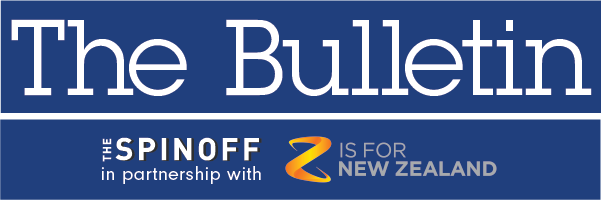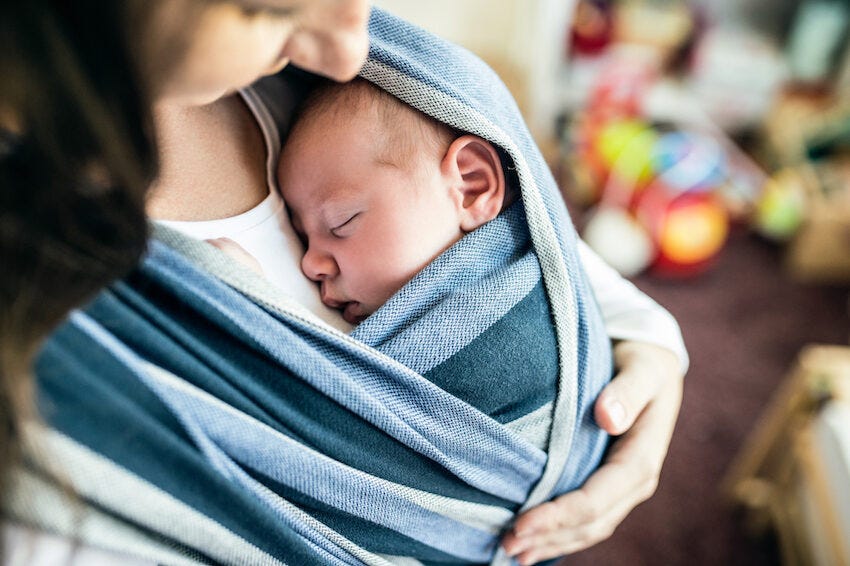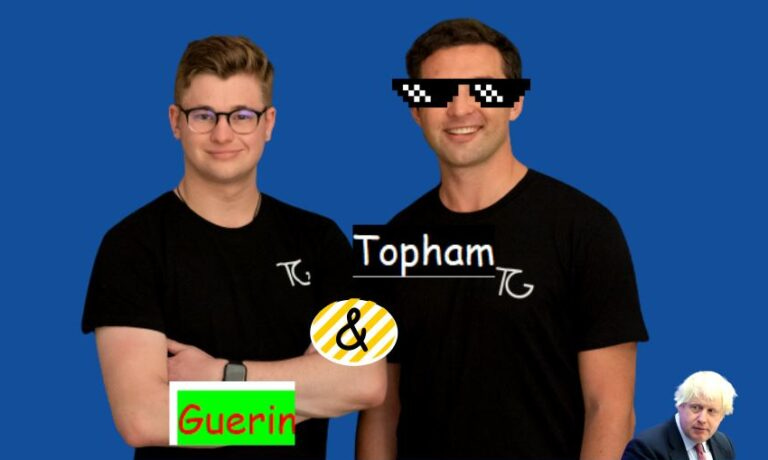Family support looms as election policy battleground
There will be a wide array of policy options for the goal of getting money to those who need it

Good morning and welcome to The Bulletin for Friday 4 September, by Alex Braae for The Spinoff. Presented in partnership with Z Energy.
In today’s edition: Family support looms as election policy battleground, warm winter heralds climate change fears, and warnings of insolvency cliff looming for government supported businesses.

(Getty Images)
National has launched a policy package around support for new parents, reports Stuff. The headline announcement in it is a package of $3000 to spend on parental services, which would have to be used with approved providers. Party leader Judith Collins said it would be there for those who need it, but wouldn't be given in the form of cash in hand. They've also reconfirmed a policy aimed at allowing both parents to take parental leave at the same time. Underpinning the policies is a philosophical commitment to heavily supporting families during the first 1000 days of a child's life.
There are certainly a lot of parents out there who will need the money. As Alice Webb-Liddall reports, a Unicef survey has found New Zealand ranks near the bottom of 41 countries in child wellbeing, with poverty being seen as a driver of other poor outcomes. That isn't exactly new information – the Welfare Expert Advisory Group report last year made it very clear, with their recommendations driving much of what has subsequently become Green party policy for the election.
We're still yet to see the tax and family support policies Labour will take into the election. PM Jacinda Ardern defended the government's efforts to date in response to the Unicef report. “The report pre-dates our progress in rolling out the $5.5bn Families Package, setting child poverty targets, lifting 18,400 children from poverty, and improving seven out of nine child poverty measures.” It's fair to say Ardern has made addressing child poverty the cornerstone of her political identity, so it will be fascinating to see whether Labour announces something more on top of what has already been done.
On the point about National's plan not being simply cash in hand, there has been a bit of a debate on social media as to whether that would be a better strategy, on the grounds that parents might need things that aren't included in the list of services. Speaking personally, I wonder if that will reopen some of the debate around concepts like helicopter money, or a UBI which is being proposed by The Opportunities Party. The former policy option was discussed in this opinion piece by Business Desk's (paywalled) Rebecca Stevenson, who suggested that or a cut in GST as being a way to simply put money in the hands of people who will spend it, thus providing an economic stimulus.
This winter was the warmest New Zealand has ever experienced, with climate change contributing to that, reports the NZ Herald. For an example of just how warm, last week Timaru in Canterbury hit 25 celsius – but pretty much the whole country was above average for the whole season. There were other causative factors for the high temperatures, like warmer seas around New Zealand, but they too are influenced by climate change. For an example of the effects of that, it meant a bad season for many ski fields, which were unable to retain enough of a snow pack, reports Stuff. One can only assume the consequences are going to get a bit more dire than not being able to ski in the future.
Chartered accountants are warning that an "insolvency cliff" is looming of businesses that would have failed without government support, even in normal times. David Hargreaves of Interest has reported on the warning, which notes that it was an unintended consequence of support that was necessary to keep otherwise viable businesses afloat. Insolvency stats for July and August are way down on where they were over the previous two years, suggesting a reality check is coming.
A good series to check out over the weekend, about the aftermath of the Christchurch earthquake. The team at The Press (but particularly Philip Matthews and Charlie Gates) have put together Munted, which is based on their experience of both living through and reporting on how the disaster affected people. The story is told in a series of written pieces and short video episodes, and I think something that jumped out to me from the episode about the Eastern suburbs in particular – it just never stopped – both the shakes themselves, and how it smashed what people had spent their life building.
Some odd looking financial arrangements for Labour's Hutt South electorate office have been revealed, by Stuff's Thomas Coughlan. It's a bit technical, so I'll quote the top paragraph:
"The Labour Party’s Hutt South wing has been running an apparently unusual subletting “arrangement” in which it gets cheap rent on office space off a local union, sublets the rooms to its local list MP Ginny Andersen, and then bills parliament at a markup, pocketing the difference."
The rest of the story goes into detail about how the arrangement allegedly works. Parliamentary Services fund the electorate office MPs, and to be clear, it doesn't appear that the law has been broken at all here – the sums of money being talked about are also in the low thousands of dollars. But I personally would quite like to know how many other MP electorate offices have similar arrangements. In a follow up this morning, questions are asked about whether this is potentially a case of donations being under-declared.
Here's a useful piece on one of the most important upcoming campaign milestones – the TV leader debates. Newsroom's Mark Jennings, who in a former life used to run TV news for Mediaworks, has looked at how the format has changed over the years, particularly through the lens of how party leaders (and probably more importantly, their teams) approach the set piece showcases. He's also analysed how those scheduled for this campaign could play out, in the context of who is moderating each one.
Just quickly – a hearty congratulations to Metro, and all the other former Bauer titles that will be returning to magazine shelves, including the Listener and North and South. They're our mates as well as our competitors, and their return is hugely positive for the industry as a whole. It's wonderful to see people willing to take a punt on them, and I can't wait to see what journalism comes out.
Got some feedback about The Bulletin, or anything in the news?
Drop us a line at thebulletin@thespinoff.co.nz

Right now on The Spinoff: Isla Stewart argues that Wellington desperately needs to replace character housing with something warmer, drier and more dense. Leonie Hayden reports on a new study that shows why Māori would be much more likely to die in a Covid-19 outbreak. Linda Collins, the author of a forthcoming book about losing a child to suicide, questions how silence can ever be a solution. Henry Oliver speaks to Sean Topham and Ben Guerin, the young digital campaigners who some (probably mistakenly) believe are evil geniuses. Sherry Zhang writes about a policy comparison tool put together by Rainbow Youth, and concerns around many parties not having LGBTQI+ policies. Jose Barbosa uses a range of traditional soothsaying techniques to predict the election results for every single party. And for the final episode of Bad News for this season, Alice Snedden is joined by Billy T award winner Kura Forrester to talk about racism, and New Zealand's treaty obligations.
For a feature today, a look at one of the unintended consequences of the ongoing tensions between India and China. Sixth Tone has reported on how travel bans have affected the delivery of cancer drugs – manufactured as generics in India – to patients in China. It's very much a human story, going behind the headlines to show how top line policies affect people on the ground. Here's an excerpt:
Ying had no idea who the supplier was — she speaks little English — but the service worked like a charm. Within a week or two of placing the order, the imatinib would arrive via EMS, the cross-border express mail service.
At the time, what Ying was doing was illegal. China labeled any unapproved pharmaceutical imports “fake drugs,” and those caught selling them were harshly punished — sometimes with long prison sentences. But many Chinese cancer patients didn’t care, and the market for Indian drugs flourished. Jin Ni, a resident of the eastern city of Taizhou, recalls speaking with many families in the hospital after her mother was diagnosed with lung cancer in 2009.
“They were all using Indian drugs,” Jin tells Sixth Tone. She adds the targeted drug used to treat non-small-cell lung cancer — gefitinib — cost 15,000 yuan per month in China at the time. “It’s unaffordable for average Chinese families, no matter urban or rural.”
There's a bit of rugby on this weekend, even if the buildup to North vs South has been heavily disrupted. The NZ Herald has a report on the two teams, and over and above the spectacle there will be some interesting matchups in there. Among them: Sam Whitelock vs Patrick Tuipulotu, Beauden Barrett vs Richie Mo'unga, and there's a reasonable chance Crusaders wingers Sevu Reece and George Bridge will end up marking each other.
That's it for The Bulletin. If you want to support the work we do at The Spinoff, please check out our membership programme




